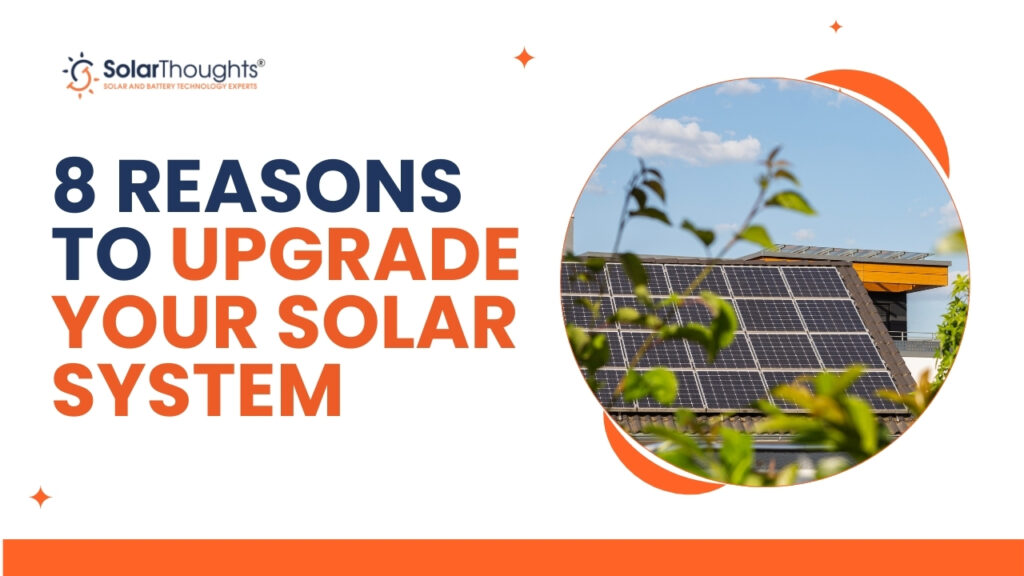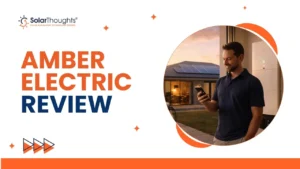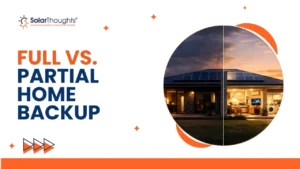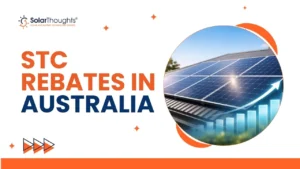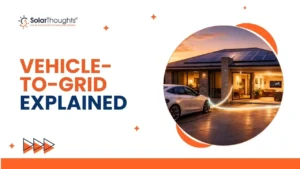The technology of solar is progressing fast, and if your system is beyond some years old, you could be losing on better effectiveness and greater energy savings. Whether your need for energy has increased, the working ability of your system has decreased, or you wish to make use of the new offers in solar power, improving your solar structure can make a big difference. This is all that needs to be known before you make any changes. Looking to Upgrade Your Solar System? Here’s What You Need to Know
Table of Contents
ToggleWhen Should You Upgrade Your Solar System?
1. Your Energy Demand Has Increased
If your family has grown bigger, you’ve included devices that use a lot of power, or if you have started to use an electric car, perhaps the solar system in your house is not making sufficient energy. You should examine your application for tracking power from the sun and contrast its production with how much you’re using. If during daylight hours more electricity comes from the public supply than before, it could be a hint towards upgrading this system already installed at home.
2. Your Solar Panels Are Outdated
Newer panels are significantly more efficient, generating more power even in low-light conditions. If your panels are over 10 years old, upgrading to modern, high-efficiency models can boost your system’s performance by up to 30%.
3. Your Inverter is Showing Errors or Performance Drops
In your solar system, the inverter is like a heart. It changes DC electricity to AC power which we can use. If you see on your app for monitoring solar that there’s less energy being generated or there are many error messages shown by the inverter, perhaps it is time for an upgrade. Getting a new one will make the conversion of energy more efficient and also get ready your system in case you want battery storage later on.
4. You’re Receiving Higher Electricity Bills
If your energy bills are rising despite having solar, it could indicate system inefficiencies. Panels degrade over time, and an underperforming system means you’re drawing more power from the grid. Upgrades can restore lost efficiency and reduce costs.
5. Your System is No Longer Compliant with New Regulations
Solar regulations and efficiency standards change over time. If your system is outdated and doesn’t meet current legal requirements, upgrading may be necessary. This is especially important if you want to remain eligible for government rebates and feed-in tariffs.
6. You’re Experiencing Voltage Fluctuations
If your lights flicker or your appliances behave erratically, it could be due to voltage fluctuations caused by an aging inverter or an undersized system. Upgrading your inverter and panels can stabilize your home’s energy supply.
7. Your Inverter Has Unused Capacity
If your current inverter has a higher capacity than your panel output, you can expand your system by adding more high-efficiency panels. This allows you to maximize energy production without changing your inverter.
8. You Want to Future-Proof Your Home with Battery Storage
If in the near time, you have thought of putting a solar battery, maybe it needs a hybrid inverter that can be used with a battery. If you do change at this moment, it might save you money later and give more energy freedom for your house.
When Should You Consider a Full System Replacement?
At times, upgrades are not preferable. When your system has been in use for more than 20 years, its warranties have finished or there are several malfunctioning parts, changing the whole system could be economically wiser. The latest solar technology works much better and carries superior warranties that provide savings as well as assurance over a longer period.
What to Know Before Upgrading Your Solar System
1. Check Your Feed-in Tariff Eligibility
Upgrading your system could affect your current feed-in tariff. Some legacy tariffs offer higher rates for exported solar power, which you might lose when upgrading. Check with your provider before making changes.
2. Avoid Mismatched Panels and Inverters
Mixing old and new panels can reduce system efficiency unless you use microinverters or power optimizers. Make sure all components are compatible to maximize energy output.
3. Ensure Compliance with Local Regulations
Grid-export limits and system size restrictions vary by region. Check local guidelines before expanding your system to avoid compliance issues.
4. Choose the Right Installer
Solar upgrades can be complex, so work with a trusted solar panel installer in Gold Coast like SolarThoughts. A professional assessment ensures you get the most efficient and cost-effective upgrade.
Upgrade Your Current Solar System Worth It?
When you make your solar system better, it can give more energy savings, and enhanced performance, and prepare your house for new technologies such as battery storage. If what you have now is not enough for your requirements, then the time has come to check out ways to upgrade.
Get Expert Advice from SolarThoughts
Still unsure whether to upgrade or replace your solar system? Our expert solar panel installers in Gold Coast can help you evaluate your energy needs and recommend the best solution for your home or business. Contact SolarThoughts today for a free consultation!
Read More On
Why is the tilt of the solar panels so important?
Do solar panels work with Moonlight?
What Are Bifacial Solar Panels?
Best Solar Batteries in Australia for 2025
Best Solar Feed-in Tariffs in Queensland

